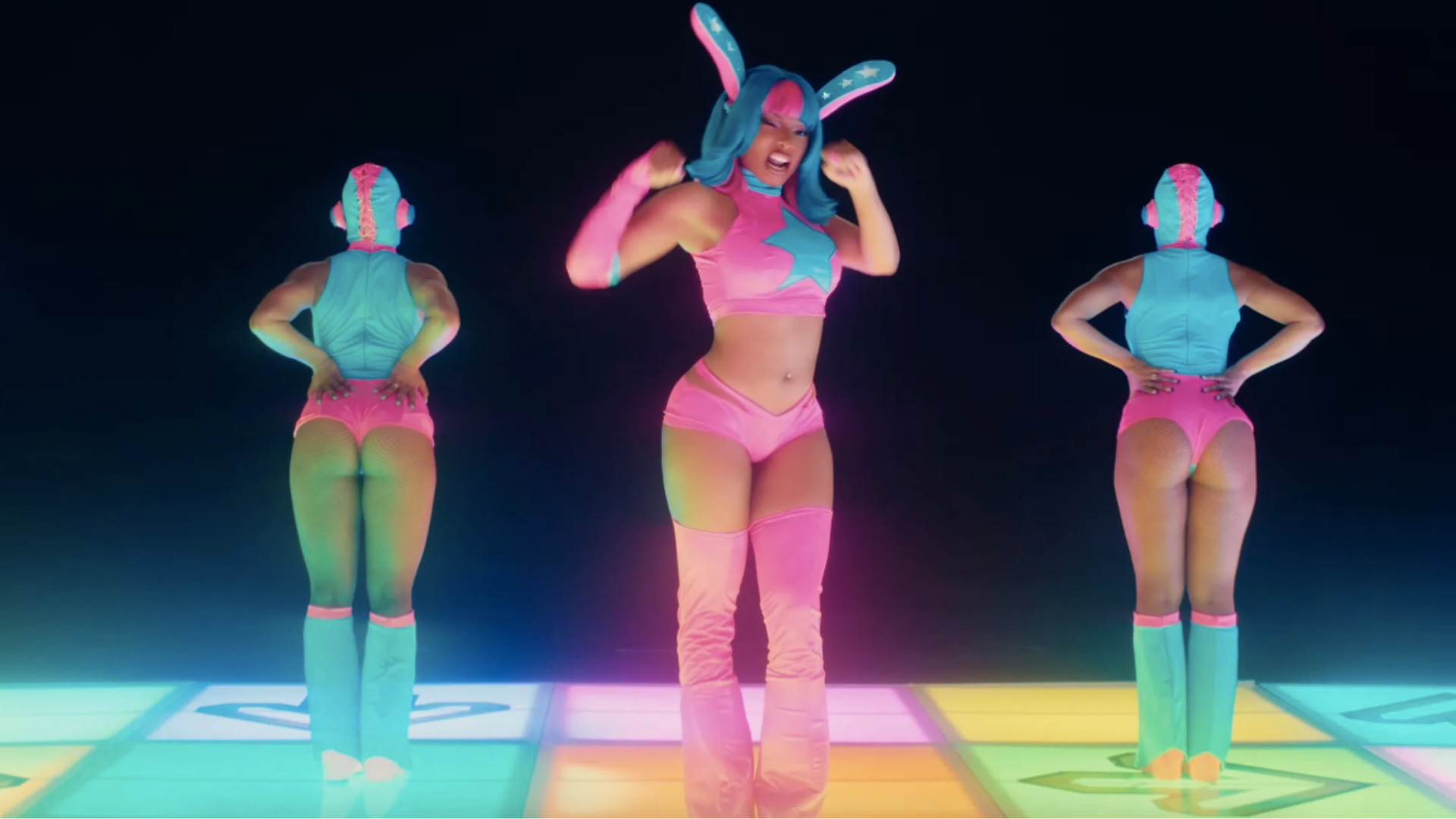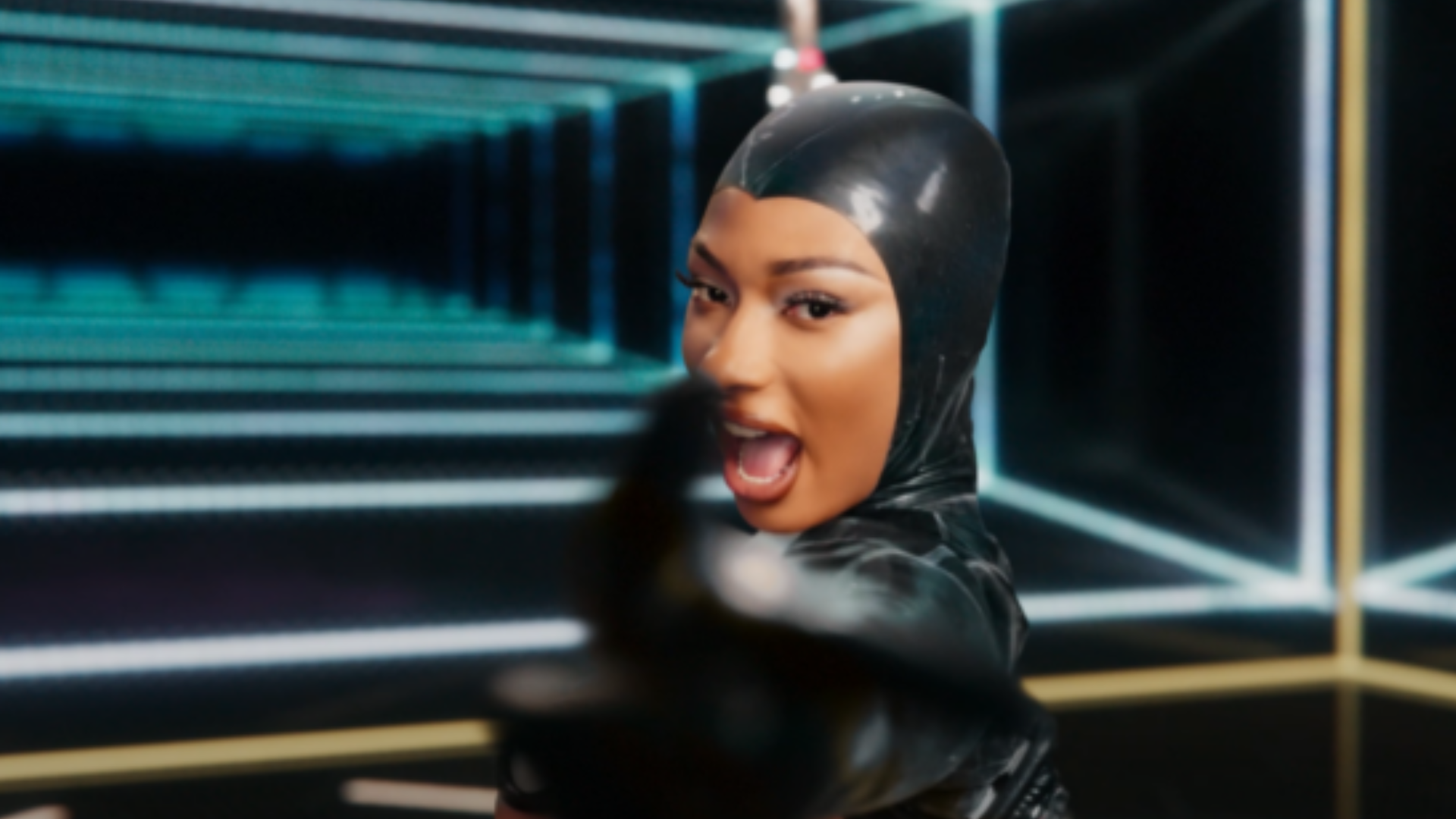
For Megan Thee Stallion, anime is more than a genre, it’s an essential part of her Hot Girl lifestyle. Much like rap, the Japanese animated art form allows the rapper and artist to experience and create entire universes that reflect her larger-than-life dreams and ideas. This is exactly what she does in her latest serpent-themed single and accompanying video, “BOA.”
Following her other reptilian records “Cobra” and “Hiss,” “BOA” showcases Megan as the unbeatable competitor that she is. Sampling Gwen Stefani’s 2004 “What You Waiting For” the new video stars the Grammy Award-winning rapper as the main protagonist in a combat-style video game, The Curse of Thee Serpent Woman. The stunning, high-octane visuals are packed with references, spanning Megan’s interests from movies to anime to video games; stages inspired by Japanese favorites Dance Dance Revolution and Gantz are dispersed among action-packed shots referencing classic game franchises like Street Fighter, Mortal Kombat, and Snake. Probably the most memorable of which is a scene featuring Megan’s booty-first finishing move on one of the players.

Throughout the video, Megan eliminates the young game players one by one, mimicking their avatar’s deaths in the game in a nod to both Jumanji (1995) and William Brent Bell’s Stay Alive (2006), a cult supernatural horror that follows the same premise. Thee Serpent Woman’s style in the video is also carefully crafted, with Megan’s character slashing through the screen dressed in cosplay Christie Monteiro from Tekken and Boa Hancock of One Piece, both powerful women in their respective franchises who, much like Megan, have overcome devastating personal hardships to reach their current levels.
Far from being her first professional nod to anime, “BOA” just marks the latest creative milestone in the artist’s long-standing love for the art form. It’s been a common recurrence in her artistry and has served as inspiration for her lyrics (like “p*ssy like a wild fox, looking for a Sasuke”, on 2020’s heavy-spitting “Girls in the Hood,” editorials, merchandise, and even her nails. In this current era especially, we’ve seen her reach heavily into her anime referential bag, doing cosplay as fan favorite Gojo Satoru from “Jujutsu Kaisen” and Jolyne Cujoh from “JoJo’s Bizarre Adventure” on her recent trip to Japan to present at the annual Crunchyroll Anime Awards. The trip culminated in a stunning Bruno Bucciarati cosplay for her Anime Awards look, for which she was invited as a celebrity presenter for Anime of the Year. This was a full-circle moment for the rapper, who initially collaborated with the popular anime streaming service on a line of merch in 2020.
Of course, anime’s relationship to hip hop and Black culture doesn’t start and end with Megan. The art form has long been popular amongst Black nerd and gamer subcultures and has been loved and referenced in Black art (and vice versa) for decades. In 1999, Japanese artist Takashi Okazaki created Afro Samurai, a soul and hip hop inspired manga, which was later made into an anime whose soundtrack was crafted by none other than RZA. Shinichirō Watanabe’s “Samurai Champloo,” another critically acclaimed anime, blends elements of hip hop with a Japenese Edo-period setting and is accompanied by the music produced by a team of hip hop composers, including Nujabes and Fat Jon.

Many rappers, including Big Sean, Snoop Dogg, Lupe Fiasco, and Lil Yachty have expressed their love for classic anime like “Naruto”, “Bleach”, and, of course, “Dragon Ball Z”. However, the relation to anime doesn’t stop with fandom—anime and Black art has collective similarities that naturally mirror one another, making many of the characters and storylines easily relatable for so many of us. Many shonen anime (which is among the most popular type) recount stories of intense adversity, grief, and oppression, which the protagonist must overcome, often through a formula of rebellion or resistance, community support, and an incredible amount of dedication and hard work.
It’s no wonder that so many artists have identified with anime powerhouses like Naruto and “Dragon Ball Z”’s Goku. Struggles against repression, uneven odds and state-sanctioned violence are ones that many are familiar with. The anime hero’s journey acts as a reflection, but also inspiration for the push to move beyond your circumstances. For example, upon the recent, tragic passing of DBZ’s creator, Akira Toriyama, whose creations helped launch anime into the American market, many a hip hop artist grieved, stating Goku’s character as inspiration for their drive.
Article continues after video.
In the legacy of anime and Black culture, Megan represents the latest entry, and when it comes to Black women who love the genre, she’s not alone. Among her peers, rappers like Rico Nasty and TiaCorine have expressed love for the genre repeatedly, infusing their love into their visuals, outfits, and music videos and drawing on the art form to bring an undoubtedly unique flair to their work. They’re also representative of a wider shift in anime culture, in which Black women are carving out a space for themselves among the anime and larger nerd community. Pages like @blackgirlsanime and Black cosplayers like @madarasdaughter, @kieraplease, and @tattedpoodle are showing that Black women not only watch anime but are informed and avid fans who deserve to be represented. As Megan continues to lead up to her latest album, we hope that there’ll be plenty more anime, nerd, and fan culture in store—because obviously, hot girls love anime too.







